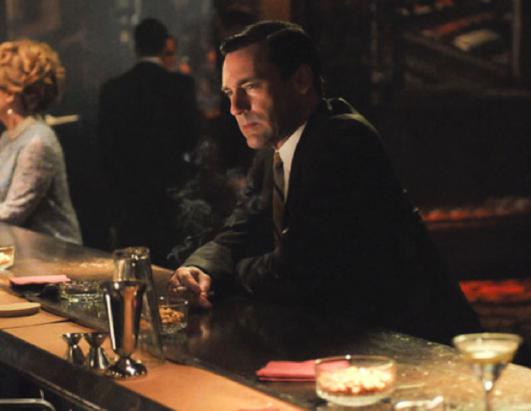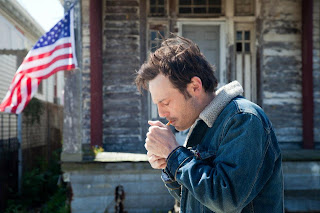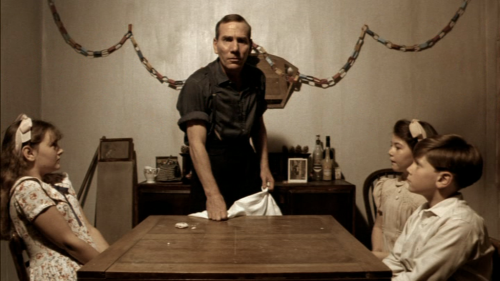Director: Leos Carax
It is not too difficult to appreciate this film, or to admire this film, or to enjoy this film, but understanding what it all means it is a different story. There is a lot going, and deciphering every single thing about this film may prove impossible on a first viewing. But when looking at the film overall, it's quite simple. We see an actor do rides around a limousine over the course of a single day doing nine different "appointments". He acts as an old lady begging in the street, he performs on a motion capture stage, he plays a father picking up his daughter from a party, he plays a sewer creature who kidnaps a model, he plays an old man on the verge of death, etc. The odd thing about these "appointments" is that there are no cameras or audience around, at least not visibly. He is performing these acts in the real world. The film hints that digital cameras are so small now, that they are invisible.
The film is a remarkably unique film in that every one of the "acts" Denis Lavant's character performs performs are executed to perfection. While the film does make sense as a whole, it's certain that director Leos Carax also wanted the opportunity to tackle all sorts of genres in one movie (it's his first film in 13 years, so he has a lot of catching up to do). He tackles these familiar genres because these genres are the "typical" entertainment we have in our lives, and because we are always performing for the omniscient camera, these genres become our reality. The digitalization of not just cinema, but of everything in our culture, has made it so in our constant performance for the camera we have lost our sense of identity. Our identity has slipped away behind the veneer of technology and the ways we choose to portray ourselves to the world. With its unique ambiguous structure, Holy Motors shows that truth in identity is slipping away from all of us in our increasingly technology-dependent world. Through it's multiple "episodes" Holy Motors is a mystifying, powerful, sensational, and thought-provoking film that tells us much about who we are and where we're going.
Grade: A













